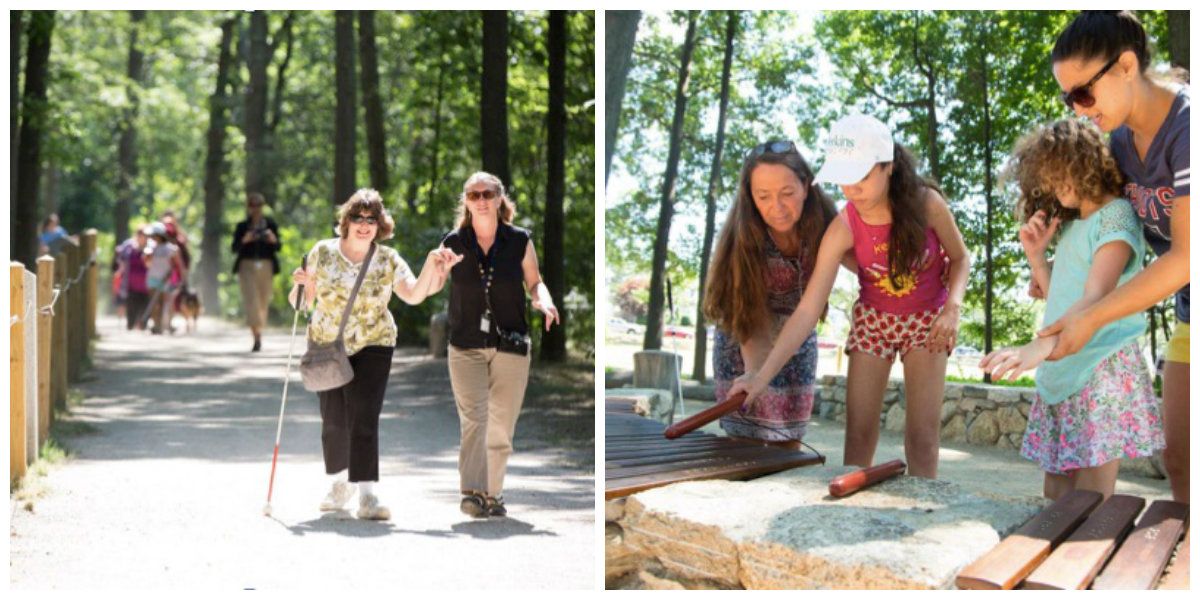Fall can be an idyllic time to explore the outdoors in New England. A newly opened park in Watertown, Massachusetts, wants to make sure everyone, from the elderly to the visually impaired, can experience nature on their own terms.
The Watertown Riverfront Park and Braille Trail, which opened in July on a site next to the Charles River in the western Boston suburb, features a quarter-mile braille trail and sensory garden, which helps visitors appreciate non-visual aspects of the outdoors. Travis Mazerall, a landscape architect from Sasaki who led the design team for the park project, says the landscape architects and designers worked to satisfy the needs of the entire public.
“Universal design is just part of the design for us, we don’t separate the two,” he says. “It’s important to, say, have benches for elderly people so they can take breaks. There are always strategies that allow you to go above and beyond the requirements of accessible design.”
A nature area in need of an update, the park now consists of a new trail system, with a new set of braille signage and cable system to guide the visually impaired, as well as a sensory garden featuring woodworking by local artist Mitch Ryerson, including marimba benches and handcrafted wooden boat benches that tap into a range of different sensory cues.
The overhaul, which also included contributions from Chester Engineers and GPI Engineers, was undertaken with the goal of strengthening connections with the neighborhood through bike paths and better trails, swapping invasive species with native plants, and strengthening the embankment on the river. But designers also wanted to make it more engaging for everyone.
 The trail system and the marimba benches in the Sensory Garden
The trail system and the marimba benches in the Sensory Garden
Mazerall says community feedback and dialogue, especially from the nearby Perkins School for the Blind, helped architects accommodate and anticipate the needs of a diverse groups of potential visitors. For instance, guide ropes and the new angled signage system allows blind park visitors to rest their hands and arms while checking out signage; oftentimes, designers forget that flat, vertical signs aren’t the most comfortable way to read braille. Better and wider trails accommodate bikes as well as wheelchairs. Granite benches offers more spots to rest and take in the landscape.
The renovation, which started as a pro-bono project, didn’t have a huge budget. But by widening their scope and investing in small, smart solutions, designers turned Watertown into a true community site.
Source: curbed



